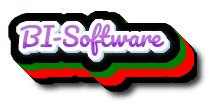In today’s fast-paced and competitive property management industry, staying organized and providing excellent customer service is crucial for success. One tool that has become essential for property managers is Customer Relationship Management (CRM) software. CRM software is designed to help businesses manage their interactions with customers, clients, and prospects, and it has numerous benefits for property management companies.

What is CRM Software?
CRM software is a type of software that helps businesses manage their customer relationships by storing and analyzing customer data, interactions, and preferences. It provides a centralized platform for managing customer information, sales, marketing, and customer service activities. In the context of property management, CRM software can help property managers to manage their relationships with tenants, owners, and prospects, and to streamline their daily operations.
Benefits of CRM Software in Property Management
There are several benefits of using CRM software in property management, including:
- Improved Customer Service: CRM software helps property managers to provide excellent customer service by storing all customer interactions and preferences in one place. This enables property managers to respond quickly and effectively to customer inquiries and issues.
- Increased Efficiency: CRM software automates many routine tasks, such as data entry and follow-up emails, freeing up property managers to focus on more important tasks.
- Enhanced Communication: CRM software provides a centralized platform for communication between property managers, tenants, owners, and prospects, reducing the risk of miscommunication and errors.
- Better Organization: CRM software helps property managers to stay organized by storing all customer information, documents, and interactions in one place.
- Data Analysis: CRM software provides valuable insights into customer behavior and preferences, enabling property managers to make data-driven decisions and improve their marketing and sales strategies.
- Reduced Costs: CRM software can help property managers to reduce costs by automating routine tasks, minimizing errors, and improving communication.
Key Features of CRM Software for Property Management
When selecting a CRM software for property management, there are several key features to look for, including:
- Contact Management: The ability to store and manage contact information for tenants, owners, and prospects.
- Property Management: The ability to manage property listings, rentals, and sales.
- Lease Management: The ability to manage lease agreements, renewals, and terminations.
- Maintenance Management: The ability to manage maintenance requests, work orders, and vendor contracts.
- Accounting and Billing: The ability to manage accounting and billing functions, such as rent payments and invoices.
- Reporting and Analytics: The ability to generate reports and analyze data on customer behavior and preferences.
- Integration: The ability to integrate with other software applications, such as accounting and marketing software.
How to Choose the Right CRM Software for Property Management
Choosing the right CRM software for property management can be a daunting task, but there are several factors to consider, including:
- Scalability: The ability of the software to grow with your business.
- Customization: The ability to customize the software to meet your specific needs.
- User Interface: The ease of use and navigation of the software.
- Integration: The ability to integrate with other software applications.
- Support: The level of support provided by the software vendor.
- Cost: The cost of the software and any additional fees.
Best Practices for Implementing CRM Software in Property Management
Implementing CRM software in property management requires careful planning and execution. Here are some best practices to follow:
- Define Your Goals: Clearly define your goals and objectives for implementing CRM software.
- Choose the Right Software: Choose a software that meets your specific needs and is scalable.
- Train Your Staff: Provide comprehensive training to your staff on the use of the software.
- Customize the Software: Customize the software to meet your specific needs.
- Monitor and Evaluate: Monitor and evaluate the effectiveness of the software on a regular basis.
Frequently Asked Questions (FAQs)
- What is CRM software?
CRM software is a type of software that helps businesses manage their customer relationships by storing and analyzing customer data, interactions, and preferences. - How can CRM software benefit my property management business?
CRM software can help you to provide excellent customer service, increase efficiency, enhance communication, and reduce costs. - What are the key features of CRM software for property management?
The key features of CRM software for property management include contact management, property management, lease management, maintenance management, accounting and billing, reporting and analytics, and integration. - How do I choose the right CRM software for my property management business?
You should consider factors such as scalability, customization, user interface, integration, support, and cost when choosing a CRM software for your property management business. - How do I implement CRM software in my property management business?
You should define your goals, choose the right software, train your staff, customize the software, and monitor and evaluate the effectiveness of the software on a regular basis.
Conclusion
In conclusion, CRM software is a powerful tool that can help property managers to provide excellent customer service, increase efficiency, and reduce costs. By choosing the right software and implementing it effectively, property managers can streamline their daily operations, improve communication, and make data-driven decisions. Whether you are a small property management company or a large real estate firm, CRM software can help you to achieve your goals and stay competitive in the market. By following the best practices outlined in this article, you can ensure a successful implementation of CRM software in your property management business.
Closure
Thus, we hope this article has provided valuable insights into The Importance of CRM Software in Property Management. We thank you for taking the time to read this article. See you in our next article!
